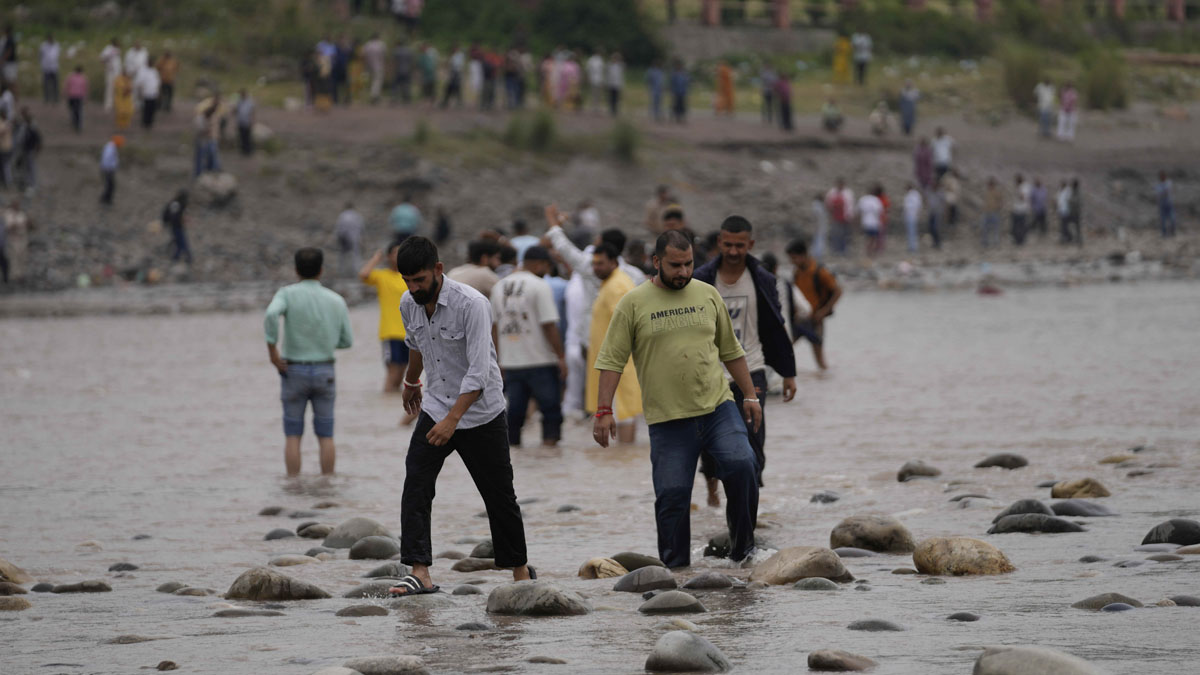Pahalgam terror attack: Locals flock to riverbed as Chenab's flow shrinks after India suspends Indus Water Treaty
 People cross the Chenab River after the flow of water was halted from a dam, at Akhnoor, on the outskirts of Jammu, India, Monday, May 5, 2025. (AP Photo/Channi Anand)
People cross the Chenab River after the flow of water was halted from a dam, at Akhnoor, on the outskirts of Jammu, India, Monday, May 5, 2025. (AP Photo/Channi Anand)
Hundreds of locals waded into the Chenab river in Jammu’s Akhnoor sector after its water level dropped to a record low. The low discharge exposed the riverbed, allowing people to walk on foot.
The decline came after the closure of gates at the Baglihar and Salal dams in Ramban and Reasi districts.
The development follows India’s decision to suspend the Indus Waters Treaty with Pakistan, following the April 22 Pahalgam terror attack that killed 25 tourists and a local horse ride operator, Syed Ali Hussain.
With the water level reduced to ankle-deep, villagers from surrounding areas flocked to the site. Some of them were filming themselves crossing the Chenab. Others searched the exposed riverbed for coins, silver, and gold ornaments.
Locals said they had never seen the river’s flow fall to such low levels. The sudden decline came after both Baglihar and Salal reservoirs were refilled following desilting operations last week.
The rising crowds and public curiosity soon led to police intervention. Officers used loudspeakers to disperse the people and warned of a sudden rise in water levels due to rainfall upstream. “There has been rain in the catchment area, and a sudden increase in water level is expected,” a police officer said.
The suspension of the Indus Waters Treaty has caused concern in Pakistan, which has announced plans to challenge India’s move. Signed in 1960, the treaty has endured through the wars of 1965, 1971, and Kargil. But the Narendra Modi-led government has now opted to hold the agreement in abeyance.
Experts believe this move could severely affect Pakistan’s agriculture, particularly in Punjab province, the country’s breadbasket. India has previously pushed for renegotiation of the treaty’s terms, but Pakistan refused. Meanwhile, political leaders in Jammu and Kashmir have long opposed the treaty, arguing it deprived the region of using its river water for drinking and irrigation.
India